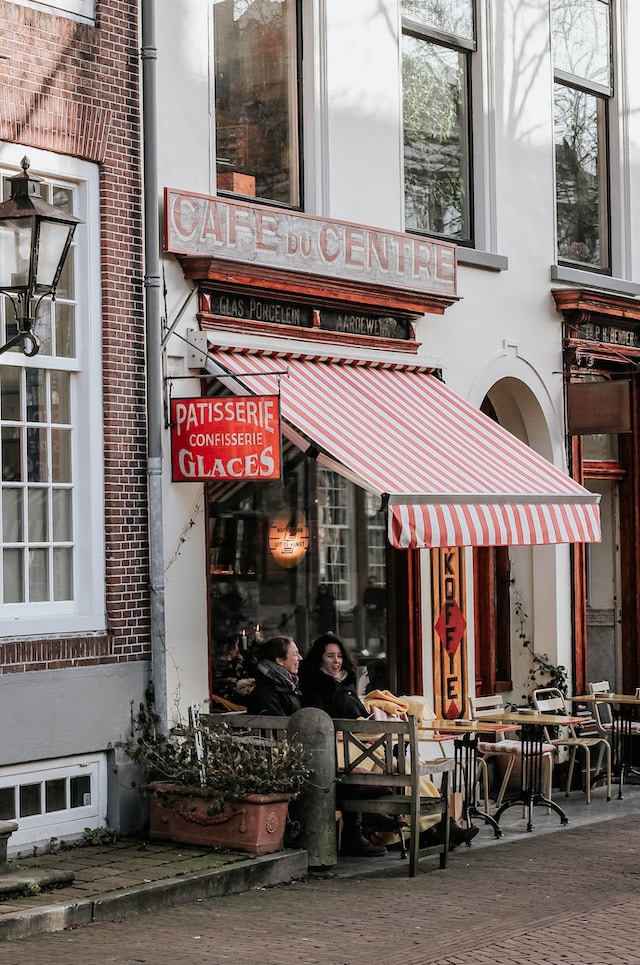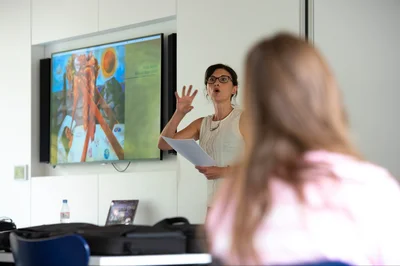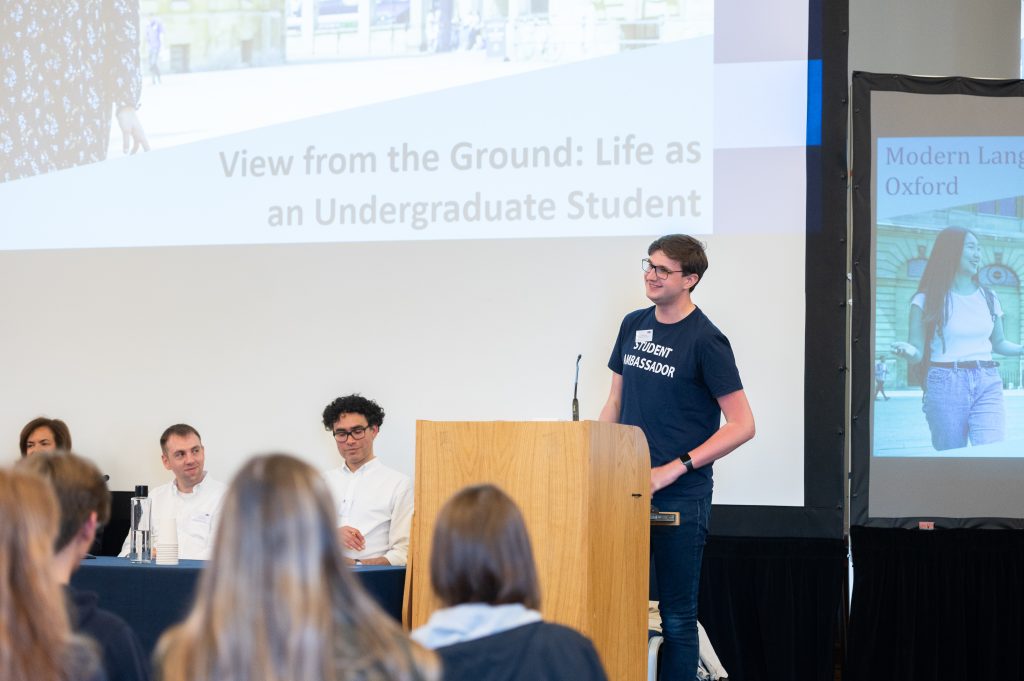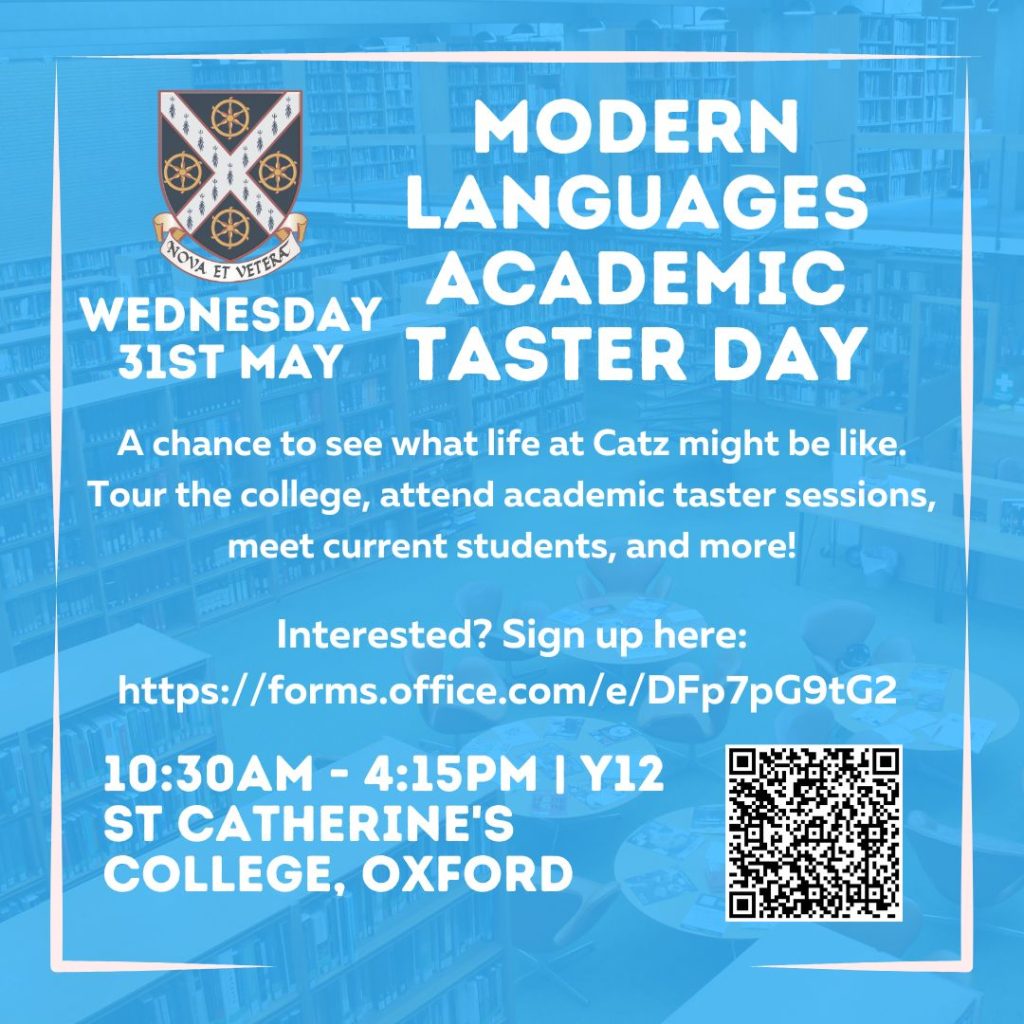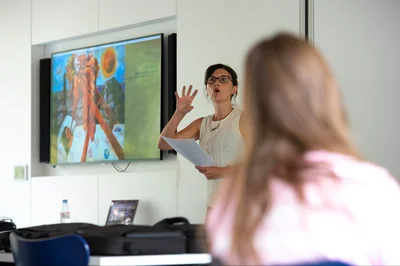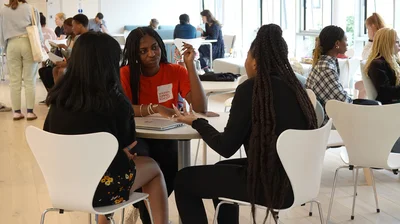Following the publication of the winning and runner up entries, we are excited to present the highly commended entries for the Year 10-11 category of this year’s French Flash Fiction competition!
A huge well done to all our highly commended entrants! Without further ado, allez, on y va!
****
«Venez ! Venez ! Tous sont les bienvenus !» crie un vendeur.
– «Maman, allons-y !» dit ma chérie.
– «D’accord.» Une foule se retrouve autour de l’hologramme. “Bien, nous savons tous que la vie naturelle est morte–
– «Honte aux Naturels ! Honte à eux !» répond quelqu’un.
– «Ils empêchent la société d’avancer !» hurle une femme.
– «Ils nous abîment !»
– «Merci ! Nous n’allons pas commencer une émeute, mes amis.» L’hologramme est assourdissant. «Je vous propose un appareil qui se débarrassera des Naturels pour de bon ! Un instrument de sagesse, car la gloire se trouve dans la perfection génétique !»
Je couvre les oreilles de ma chérie et nous partons.
– Jiali Hicks, Year 11
Cela aurait dû être moi. Elle était une fleur délicate. Je ne suis qu’une mauvaise herbe. Elle était une douce brise par une chaude journée d’été. Je suis la tempête imminente. Elle a toujours été la lumière des yeux de tout le monde. Je me fonds dans les murs. Je n’existe tout simplement pas. Elle a volé tout le monde et tout ce que j’aimais. Cela aurait dû être moi.
Maintenant, je serre sa main, toujours dans le déni. Elle a froide et sans vie, manquant de chaleur. Tout le monde l’aimait – pas moi. Cela aurait dû être moi.
– Anna Li, Year 10
Poker. Un jeu de stratégie et de bluff. Parfait pour un détective et un gentleman cambrioleur. Tous les deux restent intensément concentrés pendant toute la partie, jusqu’à ce que le détective pose “trois rois et un as”. Un sourire se glisse sur ses levres, Pourtant, le gentleman lui rend le sourire et pose “trois as et un roi!”
Au début, le détective ne sembla pas comprendre. Enfin, en partant, il marmonna “bien joué” . Le gentleman acquiesça sans dire mot avec un sourire aimable, en rentrant discrètement les trois as et le roi dans sa manche.
Poker. Un jeu de triche.
– Jerome Turenne-Rogers, Year 10
Cicatrices d’une négligence auto-imposée. Tatouages de tourment, de torture, de règne tyrannique. Le cramoisi me caressait comme un cocon. Au plus profond de l’abîme de l’océan, j’ai vu une fin, une fin à la lutte, une fin à la haine mais j’ai dû lutter contre la cruauté de Napoléon. Je devais protéger ma lignée, mon coeur battant. En perçant la surface, j’ai eu le souffle coupé et puis… j’ai vu ses mèches d’acajou flotter parmi les ondulations. Aussi vite qu’une panthère frappant sa proie, j’ai replongé et cherché frénétiquement ma bouée de sauvetage.
Mon coeur. Ma cousine.
– Anisa Begum, Year 11
La beauté de la nuit est qu’elle cache les choses qui sont claires dans la lumière. C’est l’heure du crime. Dans mon enthousiasme, je lis le journal d’hier, une bougie mourante à la main. Je ris. Cela brise le silence. Le matin venu, tout sera révélé. Elle entrera dans ma chambre, ouvrira les rideaux, fera quelques remarques insipides sur la météo…et puis, elle me passera le dernier journal. La manchette se lira “Meurtrier Frappe Encore !”. Nous échangerons un coup d’œil. Elle se moquera de ma chemise tachée de sang et je remarquerai le couteau dans son tablier. Entre-temps, j’attends.
– Maryam Khan, Year 10
La bataille était autour de lui, les deux camps se battent dur. Le Roi a observé. “Ma Reine”, il a chuchoté, “Cela ne se passe pas bien”.
Sur le champ, le fou connaissait que les chances n’étaient pas en leur faveur. Mais qu’est-ce qu’il pouvait faire?
Et ensuite il l’a vu.
Tu peux te sacrifier pour ton pays, murmure une voix en lui.
Ils gagneraient.
Le Fou a sauté avant. “Pour mon Roi!” il a crié en sprintant à travers le blanc-et-noir domaine.
Mes doigts effleurent la couronne complexe de la Reine. Doucement, je la déplace.
“Échec et mat.”
– Sara Bjelanovic
Je suis illégal
Ma mère a fui la. Elle m’a dit adieu avec beaucoup de câlins et de bisous. Tout autor de moi, je vois du chagrin, mais ce sera different en Angleterre, ça doit l’être.
On nous a donné un tout petit bateau gonflable. Vraiment chelou.
Le frois nous mord. Apparemment ‘La Manche’ tue.
Maintenant, les gens nagent vers le rivage, certains disparraisent. C’est affreux.
Ma famille et moi avons réussi. Le soulagement est incroyable.
On me dit que j’ai volé le travail quelqu’un, je n’ai rien volé. Même les politiciens me traitent l’ennemi. Je suis un humain, Ils me perçoivent comme illégal.
– Hugo Cooper-Fogarty, Year 11
Seul
Le père a appelé sa belle jeune fille.
“Aimee !” Il ne l’avait pas vue de la journée. Il s’approcha sa petite chambre douillette. En entrant, il découvrit un lit vide, fraîchement-fait. Il s’est assis, confus, se demandant où était Aimee. La porte s’ouvrit. “Ma femme”, s’enthousiasme-t-il, manque sa famille. La mère, l’air préoccupé, s’assit posant une main sur son genou. “Chéri, elle est partie”. Un déclenchement. Retour à la réalité. “Je sais”, dit-il, sa tête dans ses mains. “Mais c’est difficile maintenant que tu l’es aussi”. En levant lentement sa tête, le silence devint assourdissant. La chambre vide devient étouffante.
– Sophie Thomas, Year 10
Par la fenêtre du train, je vois les champs qui vivent,
Ma Madeleine de Proust, m’engouffre et m’invective.
Je me languis toujours de mon pays d’autrefois,
Elle me montre ses fleurettes, ses belles cascades galloises.
Soudain, le train s’arrête, mon coeur s’accélère,
Le vent persistait, dans la nuit crépusculaire.
Elles n’ont pas changé depuis mon dernier voyage,
Les roses blanches et les jonquilles sauvages!
Le train en mouvement, je fais signe à Madeline,
Je penserai au chant des oiseaux à l’aube crystalline.
Mais mon avenir m’a montré d’autre fleurs,
La jonquille vivra toujours près de mon cœur.
– Arya Dorjee, Year 11
****
Félicitations tout le monde!

